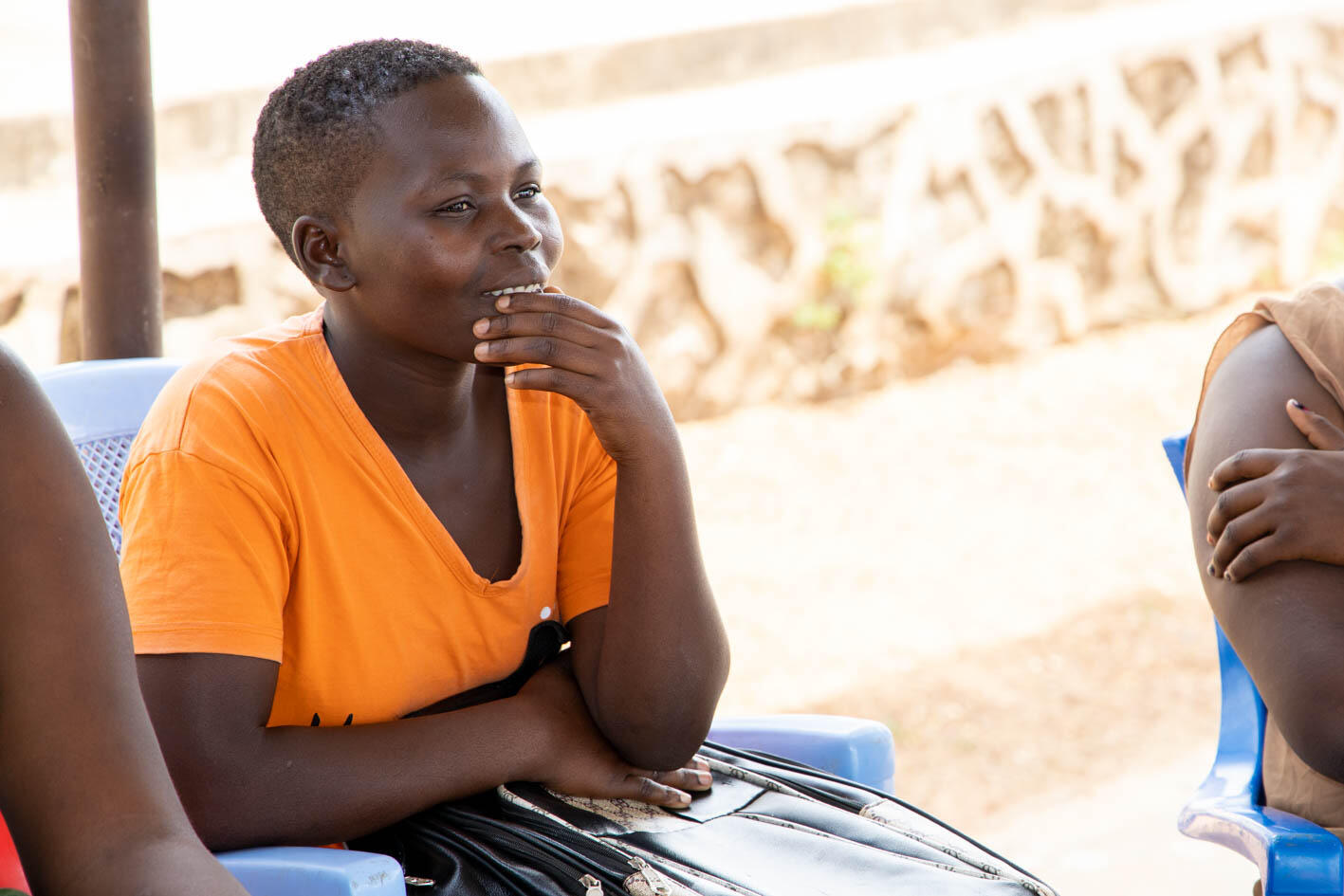“In the very beginning, I attended an adolescent girls camp in Shinyanga town, organized by KIWOHEDE,” recalls Firyali,* a 17-year-old activist in Kahama, Shinyanga Region, Tanzania, and a student at Nyerere Secondary School in Msalala-Kahama. “I thought it would be very boring as most of our clubs are more speech style, but my brother, 23, also an activist, told me to just go along and see and leave the next day if I wanted.”
Firyali remembers the first day as being a little like school with discussions about reproductive health and girls’ rights. But then she says she started to understand a few things. “I didn’t notice before that I have gender inequality at school”, she says. “That people think a girl is a “thing”– a thing that cleans the home and does whatever she is told.”
When the adolescent girls camp ended, Firyali and her friends decided to form a small girls club and meet every week. They started to gather information on their rights, including from UNFPA’s website, and visited E-Shangazi on Facebook – an “online aunt” where young people can access information and ask questions in confidence about their sexual and reproductive health and reproductive rights. Firyali remembers the support they received, particularly from her mother and brothers – “We had 24 members,” she exclaims.
But not everyone was so supportive of Firyali and her friends. Some parents of club members were angry and ashamed that their daughters were learning about their bodies and rights and no longer let them come to the meetings. “It was a very hard period when nobody was coming,” Firyali says. “We felt our club was breaking.”
But Firyali and her friends were not to be deterred. They thought about how they could reach other adolescent girls and educate them about their bodies and rights and tackle gender-based violence and harmful practices; and they decided to create an arts group.
Firyali is one of thousands of adolescent girls across Tanzania who are demanding their rights to be equal and combatting gender stereotypes, education inequality and violence.
The group has now evolved into the Now! Girl Activists of Nyerere Secondary School of Msalala with four coordinators. They use art, music, technology, and drama to speak out against violence and harmful social norms around gender equality so that teenage girls understand their rights. Humour plays a large part in their activities as Firyali highlights when she mentions the story about her cousin that features in their latest community drama. Firyali describes her cousin as a tall, strong netball player who fought off three men who were trying to force her to come with them. “She was so so angry that she fought with them all. They were like, ‘Oh my God, we don’t want her!’ Firyali says laughing. “Our dramas and songs make fun of stereotypes and inequality, and although we joke the clear message is that we are not prepared to put up with it.”
Like many girls in Tanzania – and around the world – Firyali has big dreams for the future. After graduating from university she is going to take a school book and make it into a piece of handmade art with corrections, notes, stickers, and new pictures. “I don’t see one woman scientist in my school books; and it constantly says ‘he’, she says. She is even thinking of giving the book to the Minister of Education with recommendations to make school books everywhere gender-sensitive!
Firyali is one of thousands of adolescent girls across Tanzania who are demanding their rights to be equal and combatting gender stereotypes, education inequality and violence. Supported by efforts that equip them with life skills and knowledge about gender equality – and their sexual and reproductive health and reproductive rights – they are demonstrating the power of girls, their potential, and what they can become if they’re treated as equal.
UNFPA will continue to take the 2030 Agenda forward by supporting efforts in Tanzania that empower girls to challenge social norms and values that keep them locked in a cycle of violence and inequality, including by working in synergy with its sister agency UN Women under the Joint Programme in Singida and Shinyanga Regions – supported by the Korea International Cooperation Agency (KOICA) – to tackle cross-cutting obstacles that are preventing adolescent girls and young women from fulfilling their potential. Activities under the programme will include establishing Adolescent Girls Clubs and strengthening protection systems such as the toll-free National Child Helpline so that adolescent girls – like Firyali – have the support they need and agency to uphold their rights and realize their dreams of a better and more inclusive future.
* Name has been changed.


